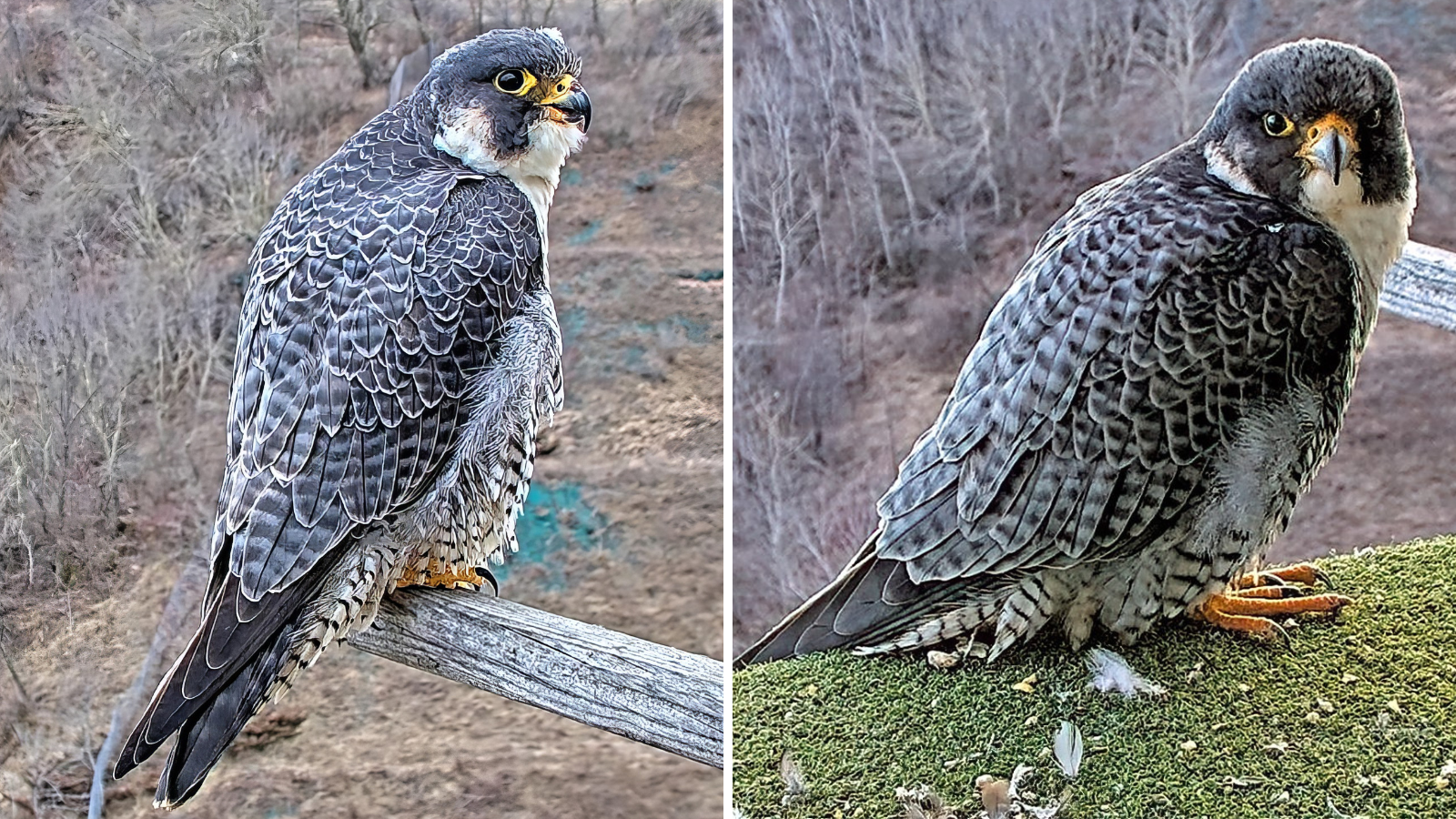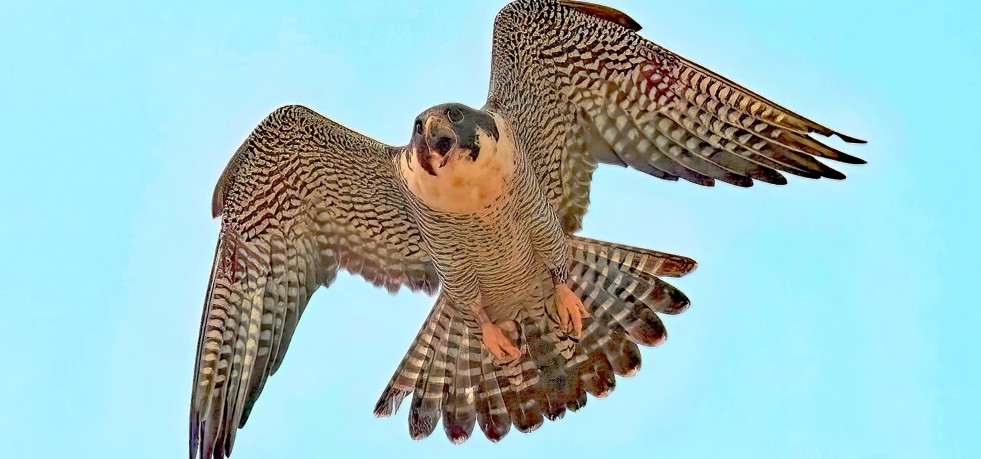We Energies is sad to announce the deaths of two of its longest-returning peregrine falcons, Brinn and Beasley. Brinn had been nesting at the Port Washington Generating Station since 2014. Her mate, Beasley, arrived at the nest site in 2017. Both are believed to have died of highly pathogenic avian influenza, or bird flu.
Peregrine falcon manager Greg Septon discovered Brinn died in the Port Washington nest box. Beasley has not been found, but he stopped returning to the nest box within a few days of Brinn’s death. As a result, Septon believes Beasley has also died.
“We know our customers have come to know and love Brinn and Beasley over the past 11 years thanks to our webcams,” Mike Grisar, team leader environmental for We Energies. “While we are heartbroken over their loss, we know their legacy lives on in the dozens of chicks they brought into this world and the awareness they helped to bring to peregrine falcon recovery efforts across the state.”

Brinn was born in 2012 at Gold Hoist Cliff in Split Rock State Park in Minnesota. This would have been her 12th year nesting in Port Washington. Over 11 years, she raised 30 chicks: Puck, Hero, Warrior, Pete, Phlash, Golden, Garth, Barney, Jump, Harvest, Hugs, Cheers, Smokey, Lyno, Portview Peep, Lillie, MacKena, Larsen, Shea, Millennial, Oscar, Buckshot, Hecate, Squid, Loriann, Suzie, Spikey, Norman, Juneau and Noel.
Beasley was Brinn’s mate for eight of those years and fathered 22 chicks. He was born in 2014 at the former We Energies Milwaukee County Power Plant in Wauwatosa. This would have been his ninth year in Port Washington.
Peregrine falcon program
It is unclear how bird flu will impact the other We Energies and Wisconsin Public Service (WPS) nest boxes this season, but the company remains hopeful there will be chicks that successfully leave the nest.
“Peregrine falcons have been a resilient species for thousands of years,” Septon said. “They survived near extinction after widespread use of the pesticide DDT, they survived West Nile virus, and we’re confident they’ll survive this outbreak of bird flu, too.”
Peregrine falcons are still considered an endangered species in the state of Wisconsin. We Energies and WPS began installing peregrine falcon nest boxes on power plants in 1992. To date, 453 peregrine falcons have hatched at We Energies and WPS facilities — that’s 20% of all peregrine falcons born in the state.

